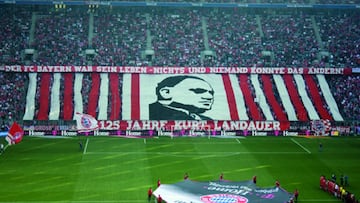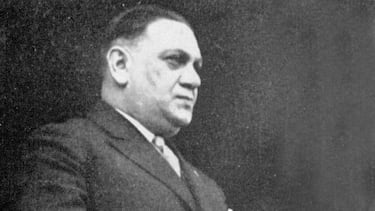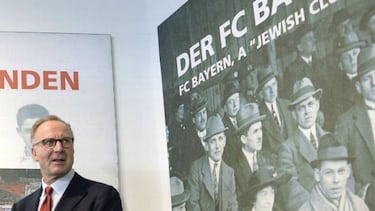Bayern Munich to re-examine anti-Nazi past in light of new evidence
The club want an independent study to look into new research published in Der Spiegel that casts doubt over the club’s reputation as a focus for anti-Nazi resistance during the 1930s and 1940s.</br><a title="Germany vs Norway live online: Russia World Cup 2018 qualifier" href="https://en.as.com/en/2017/09/04/football/1504520287_742090.html">Germany vs Norway live online</a>

Bayern Munich have announced that the club want an independent study to examine its role during the Nazi era (1933-45) following the publication of new research casting doubt over its reputation as a focus of anti-Nazi resistance.
Bayern's Jewish roots
Formed in 1900 in a bohemian neighbourhood of Munich, Bayern were inexorably tied to the Jewish community for much of the pre-war period. The club was run by Jewish president Kurt Landauer from 1913 until 1951, a spell broken only by his arrest and forced exile in Switzerland by the Nazis between 1938 and 1947. The club’s most successful manager, Richard Dombio (who led Bayern to their first-ever league title in 1932 and who would later go on to manage both Barcelona and Feyenoord) was also Jewish.

A focus for acts of anti-regime resistance
Branded by the Nazis as a Judenklub, the club quickly became the focus of small-scale and personal acts of resistance to the regime. As Guardian writer Raphael Honigstein explains, incidents such as winger Willy Simetsreiter’s decision to be photographed alongside black athlete Jesse Owners during the 1936 Olympics and captain Conny Heidkamp hiding the club’s silverware from Nazi officials who had appealed for metal to aid the war effort strengthened the club’s anti-Nazi credentials. When Bayern played a friendly in Geneva in 1940 the players lined up to greet the exiled Landauer, much to the anger of the Gestapo, the Nazi secret police. With acts such as these and this legacy in mind, the club was awarded the Julius Hirsch award for its ‘resistance against national socialism’ in 2005.
Did Bayern behave just like any other club?
However, speaking to national news magazine Spiegel, historian Markwart Herzog now argues that new evidence from within the club suggests that the image of an institution opposed to the Nazi regime “is not valid.”
“Basically we’ve arrived at the conclusion that the club behaved like the majority of other clubs during that time,” he said. “Bayern’s history isn’t as heroic as we thought.”

Related stories
Herzog’s outspoken claims haven’t gone unnoticed. Dietrich Schulze-Marmeling, author of FC Bayern and its Jews,’ has hit back at Der Spiegel and Herzog, criticizing them for publishing “a mixture of already-known information and a large dose of fraud.”
According to Spiegel, Bayern Munich have now announced that “this information and these opinions must be evaluated by experts.”